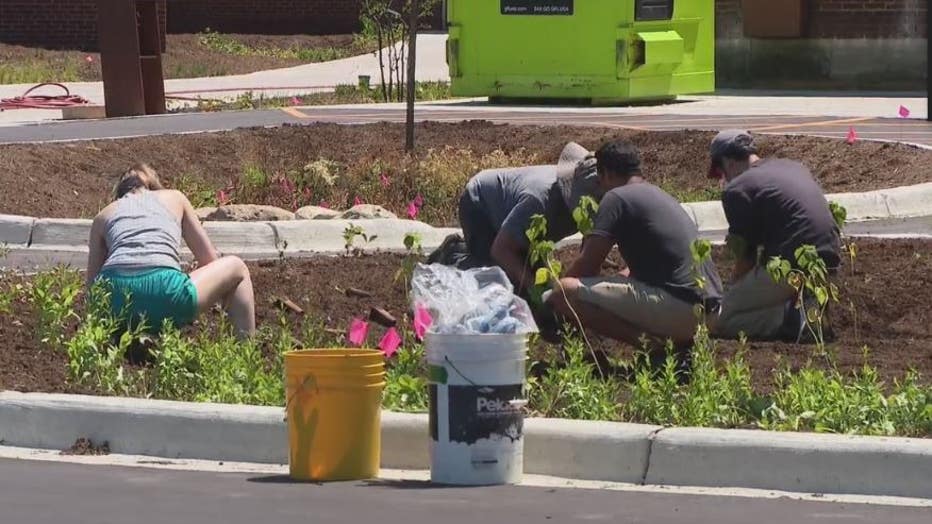Rain gardens in parking lots can reduce flooding and pollution
FOX 2 - Rain gardens are a great way to reduce flooding and cut down on pollution. But now we're seeing rain gardens pop up in unusual places, including parking lots.
"We should be doing things like rain gardens so we can build a habitat and solve problems with flooding and pollution, it's a no brainer," said Matthew Bertrand, restoration coordinator and landscape designer.

FoxE Report - Rain gardens could be coming to a parking lot near you
Derek Kevra has the latest on rain gardens, but not in a place you would normally expect.
When it comes to eco-friendly, you don't often think parking lot, but maybe we should be.
"Transforming a parking lot into a model for really what we want to see in parking lots across southeast Michigan to solve problems with flooding with pollution and to build habitats for pollinators and butterflies," he said.
Thanks to a $400,000 grant from the Michigan Department of Environment, Great Lakes and Energy, the group Friends of the Rouge have completely redesigned a local parking lot to include tons of rain gardens,
"So we planted rain gardens throughout this parking lot," he said. "There's really no other parking light a lot like it here in Southeast Michigan."
Call it the gold standard for parking lots specifically designed to direct rainwater to the 23 rain gardens on-site.
"Rain falls in the parking lot upstream here, it flows down, it kind of gets channeled into this odd contraption in here," Bertrand said. "And you can see the water start to pool here a little bit. That's all by design."
The junk gets caught there while the water can slowly seep into the garden,
"A parking lot like this, there's an incredible amount of pollution that comes from our cars," he said. "Think about the oil that drips from your cars. Think about your brakes as they're wearing down the tires is they're wearing down. And then, the parking lot itself the sealant breaks down."
The rain gardens will act as a filter for that quarter of a million gallons of water each rainfall.
"Each rainfall typically, what happens is all the water runs off the parking lot. And it goes into the storm system into the river where it's a pollution problem," he said.

But not anymore. And perhaps the largest benefit is a solution to a pretty big problem. We've seen far too much of this year.
"We're not flooding the people that live just down the street, we are not flooding the creek, just a block or two down from here," Bertrand said. "We're not flooding the people in Canton downstream that are getting flooding every year. So we're really helping to solve the big problems."

